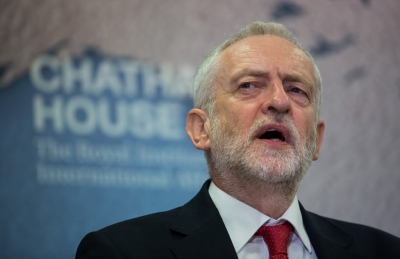Last week Jeremy Corbyn came under fire over accusations that he was passing sensitive information to a Czech spy in the 1980s. Despite the source for these claims having been widely discredited – described by some as a “fantasist”, this story continued to run all week, with the Prime Minister capitalising on the issue with a Cheque/Czech-based pun at PMQs.
Some Tory MPs have been less jovial about the issue however, with Ben Bradley claiming that Corbyn had actually sold British secrets to the communists (for which he has now publically apologised for), and other Tory MPs demanding that Corbyn’s team release the files they claim the Stasi had on him – files which the German authorities insist do not exist.
This line of attack of course builds on the robust anti-Corbyn campaign launched by the Tories during the last election, peddling the idea that the Labour leader “hates Britain” and threatens national security. Many would agree that there are legitimate questions to be asked about Corbyn’s past meetings with the IRA but, for many younger voters in particular, the Tory 2017 election campaign undoubtedly began to look like just a Tory mud-slinging campaign.
After the surprise result of the last election, Tory strategists now seem to recognise the need to take on Corbyn’s arguments, rather than just his character, after millions of younger voters in particular flooded towards Corbyn’s Labour. For what seems like the first time since she became Prime Minister, Theresa May is now, for example, seeking to speak directly to younger voters, announcing a review on tuition fees and offering further help for the young on housing.
Nick Timothy, May’s former top adviser in Number 10, has come forward with his own ideas of how the Tories should take on Labour’s arguments on policy issues by penning an article in the Telegraph on the subject last week. Despite the no doubt loud groans from many Tories as the article landed in their inbox, Timothy aptly describes the policy predicament the Conservative party now finds itself in.
If the Conservatives attempt to address the issues of the disaffected in society – the issues which Labour describe as being rooted in “dysfunctional markets” – do they risk legitimising Corbyn’s fundamental critique of capitalism? Can they speak to the voters they need to win over at the next election by proposing new policies on tuition fees, the property market, or the NHS when Corbyn can just propose, what many see as, simpler, more radical and direct alternatives.
Whatever the answer to this policy dilemma, it’s clear that the Tories now need to begin serious work to reach out beyond their base. Narratives around Cold War spies and nuclear weapons certainly do speak to a certain group of voters, but without substantial new policy ideas to address the real issues many ordinary people face in wider society, the Tories may find they struggle to regain their absolute majority in the Commons next time around.




